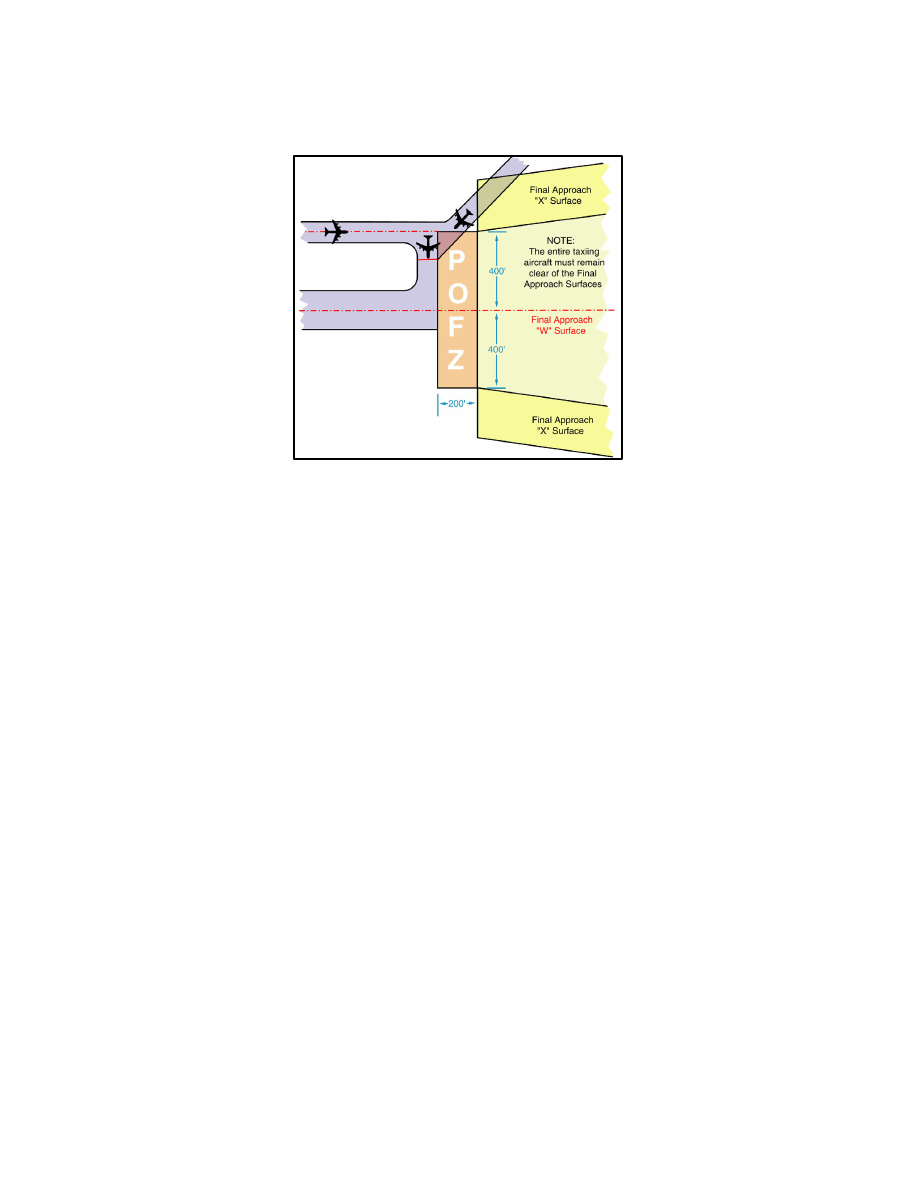
AIM
4/20/23
FIG 5
−
4
−
29
Precision Obstacle Free Zone (POFZ)
c. Straight
−
in Minimums
are shown on the IAP when the final approach course is within 30 degrees of the
runway alignment and a normal descent can be made from the IFR altitude shown on the IAP to the runway
surface. When either the normal rate of descent or the runway alignment factor of 30 degrees is exceeded, a
straight
−
in minimum is not published and a circling minimum applies. The fact that a straight
−
in minimum is
not published does not preclude pilots from landing straight
−
in if they have the active runway in sight and have
sufficient time to make a normal approach for landing. Under such conditions and when ATC has cleared them
for landing on that runway, pilots are not expected to circle even though only circling minimums are published.
If they desire to circle, they should advise ATC.
d. Side
−
Step Maneuver Minimums.
Landing minimums for a side
−
step maneuver to the adjacent runway
will normally be higher than the minimums to the primary runway.
e. Published Approach Minimums.
Approach minimums are published for different aircraft categories and
consist of a minimum altitude (DA, DH, MDA) and required visibility. These minimums are determined by
applying the appropriate TERPS criteria. When a fix is incorporated in a nonprecision final segment, two sets
of minimums may be published: one for the pilot that is able to identify the fix, and a second for the pilot that
cannot. Two sets of minimums may also be published when a second altimeter source is used in the procedure.
When a nonprecision procedure incorporates both a stepdown fix in the final segment and a second altimeter
source, two sets of minimums are published to account for the stepdown fix and a note addresses minimums for
the second altimeter source.
f. Circling Minimums.
In some busy terminal areas, ATC may not allow circling and circling minimums will
not be published. Published circling minimums provide obstacle clearance when pilots remain within the
appropriate area of protection. Pilots should remain at or above the circling altitude until the aircraft is
continuously in a position from which a descent to a landing on the intended runway can be made at a normal
rate of descent using normal maneuvers. Circling may require maneuvers at low altitude, at low airspeed, and
in marginal weather conditions. Pilots must use sound judgment, have an indepth knowledge of their capabilities,
and fully understand the aircraft performance to determine the exact circling maneuver since weather, unique
airport design, and the aircraft position, altitude, and airspeed must all be considered. The following basic rules
apply:
1.
Maneuver the shortest path to the base or downwind leg, as appropriate, considering existing weather
conditions. There is no restriction from passing over the airport or other runways.
Arrival Procedures
5
−
4
−
58